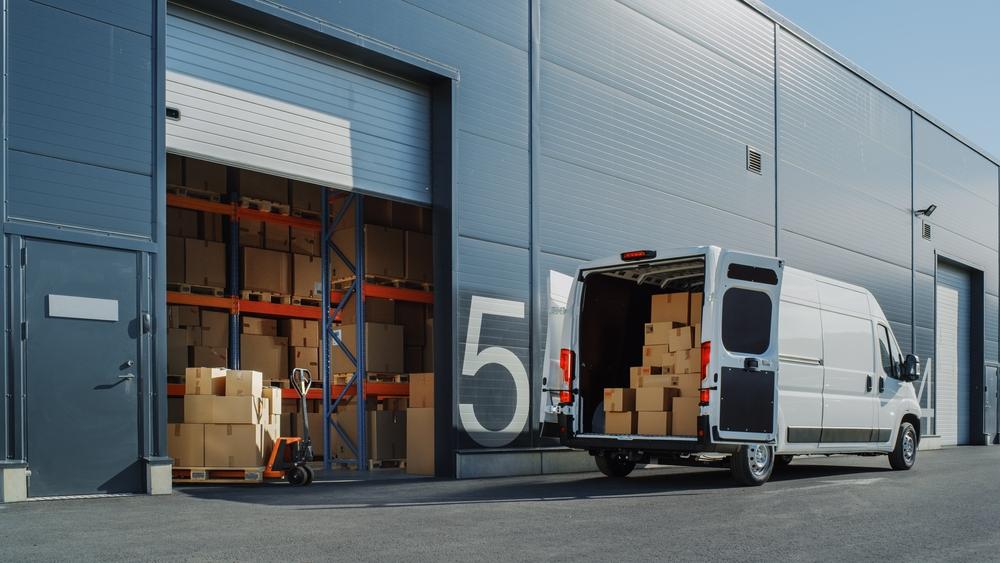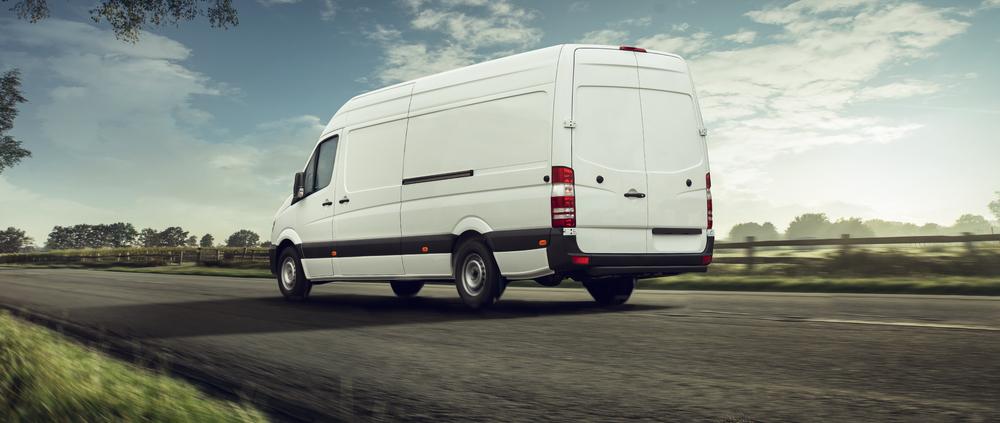
When it comes to hauling equipment, tools, inventory, or any kind of cargo for your business or personal needs, a reliable cargo van is an absolute workhorse. But with so many options on the market, deciding which one to buy can feel like a heavy lift.
Fear not - this guide is here to help you navigate the cargo van world and find the perfect fit for your unique hauling needs and budget.
We'll cover all the critical factors to consider, from upfront costs and financing to storage capacity and fuel efficiency. You'll learn insider tips on comparing makes/models, must-have features for different industries, and the most important specs to zero in on. By the time we're done, you'll be a cargo van connoisseur ready to drive away with unbeatable value.
Taking Stock of Your Needs
Before kicking off your cargo van hunt, it's crucial to define exactly what you'll be using this vehicle for daily. Will you be hauling heavy machinery, large inventory orders, or mountains of landscaping equipment? Perhaps you need tons of room for storing catering supplies and food transport. Or maybe it's all about maximizing cargo space for household moves and deliveries.
Get specific and make a checklist of your must-haves:
- Minimum cargo space and dimensions
- Payload capacity for heavy loads
- Interior amenities for organization and accessibility
- Towing capabilities for trailers or equipment
- Fuel efficiency for cost savings
- All-wheel drive for rugged terrain
- Climate control for transporting perishables
This clarity will streamline your research and decision-making later. Don't worry, we'll walk through all of these factors and more.
New vs Used: Crunching the Numbers
One of the first choices you'll face is whether to buy a new or pursue a high-quality used cargo van. Both options have compelling advantages depending on your budget and needs.
Brand-new cargo vans offer the latest designs, technologies, and features right off the factory line. You'll get premium fuel efficiency, warranty coverage, cutting-edge driver-assist safety, and innovative cargo systems for efficient hauling. The downside? Substantially higher sticker prices could strain your budget, especially if you need financing.
On the pre-ownedside, late-model used cargo vans 2-4 years old can deliver incredible value while still giving you modern amenities. You'll likely pay 30-40% less than new to get a well-maintained, relatively low-mileage van. Used vans 5+ years old are even more budget-friendly but carry higher mileage and repair risks.
If longevity is your top priority, buying new gives you the peace of mind that comes with being the first owner from day one. You won't have any mystery around previous maintenance or undisclosed issues. But if keeping upfront costs low is essential, then buying used from a reputable seller with diligent vetting could be the way to go.

Budgeting Like a Pro
Those sticker prices aren't the end of the story when it comes to cargo van ownership costs. Proper budgeting needs to account for all the expenses you'll encounter down the line to stay financially fit.
- Upfront Costs: This category includes the van's selling price, any needed accessories or modifications, taxes/fees, and don't forget a pre-purchase inspection from your mechanic.
- Insurance Premiums: Cargo vans cost more to insure than regular personal-use vehicles because of their high value and weight ratings. Your annual premiums could run $1,000 to $3,000+ depending on factors like cargo type, mileage, driver profiles, liability coverage levels, and whether you're using it for commercial operations.
- Registration Fees: Renewing tags each year will cost $100-$500+ depending on state rates and your van's weight class. Commercial registrations are higher than personal ones.
- Fuel/Operational Costs: Cargo vans get lower MPG than standard vans due to their size and hauling demands. Budget for more frequent fill-ups based on your expected annual mileage. Don't forget toll costs too if your routes include major highways.
- Maintenance/Repair Reserves: Even with a pre-owned vehicle history report, issues like transmission breakdowns, suspension problems, or brake repairs are always possible. Build a rainy-day fund for these expenses so a major repair bill doesn't blindside you down the road.
If financing your purchase, you'll need to factor in monthly loan payments as well based on your interest rates, down payment, and loan terms until the vehicle is paid off.
Picking the Right Cargo Hauler
Once you've nailed down your budgeting parameters, it's time for the fun part - choosing which specific van best suits your cargo lugging needs! Those initial must-haves you outlined earlier will be essential guides here.
- Cargo Space & Dimensions: The cubic feet of cargo room is an obvious factor, but dimensions are just as critical. Taller roofs and extended bodies allow hauling bulky or oversized items with ease. If you need to maximize vertical clearance, high-roof configurations with interior standing height could be worth the premium.
- Payload Ratings: Every van has a maximum payload capacity, usually ranging from around 3,000 lbs for lighter models up to 4,500 lbs for heavy-duty haulers. Know the combined weight of your heaviest loads, equipment, and passengers to stay within safe limits. Going overloaded, even occasionally, risks breakdowns.
- Access Doors & Cargo Configurations: Sliding side doors, rear barn doors, and liftgates - how cargo enters/exits the van matters a ton for productivity. Ambulance-style side access can be a game-changer when loading/unloading constantly. Interior shelving, D-rings, access steps, and organizational systems keep things secure and accessible too.
- Towing Capabilities: If your jobs require towing trailers or heavy equipment regularly, look for vans rated for higher gross combined weight ratings (GCWRs) and payload plus trailer weight capacities. Engines, drivetrains, and suspensions need to be heavy-duty as well. Opting for all-wheel drive with towing packages increases your flexibility.
- Comfort & Convenience Factors: Don't underestimate interior ergonomics that keep drivers happy on long cargo hauls. Captains chairs with multiple adjustments, tilt steering wheels, navigation/infotainment suites, and driver-assist safety make a major difference in preventing fatigue.
Top Cargo Van Options
With all those must-have criteria in mind, here are some of thetop cargo van models to consider across different size classes:
Full-Size Vans
Ford Transit and Transit Connect, Mercedes-Benz Sprinter, Nissan NV, Ram ProMaster - These bigger, higher-capacity vans shine for heavy payloads, oversized cargo, towing, and all-around versatile hauling across industries. Powerful engine options pair with expansive cargo areas and customizable up-fits. Expect to pay $30K-$45K new but find used deals in the $20K-$30K range.
Mid-Size Vans
Chevrolet Express, Ford Transit Connect, RAM ProMaster City - More affordable options around $20K-$30K offering ample space for efficient deliveries and job sites.
The Ford Transit Connect, for example, delivers a capable 1,600-lb payload despite its compact footprint. Go with shorter or longer wheelbases based on your loading needs.
Minivans
Chrysler Voyager, Chrysler Pacifica, Kia Sedona - On the personal use side, minivans shouldn't be overlooked as family haulers with low load floors, stow-and-go seating, and impressive cargo volumes behind the third rows. Prices range from around $20K-$35K.
Within those general categories, dig into the performance stats on towing, fuel economy, and payload ratings to match your work demands. Read expert reviews, owner forums, and cross-shop cargo van dealers to assess the pros and cons of each top contender through an informed lens.
Dealer vs Private Party Sellers
Like any vehicle purchase, cargo vans can be acquired from traditional dealerships or private party sellers listing their vans for sale. Each route has its own advantages and risks to weigh carefully.
Dealership Benefits
- Access to history reports, maintenance records, and point-of-sale certification
- Financing assistance and extended warranty options
- Higher inventory turnover means more variety of makes/models
- Ability to thoroughly inspect on-site before purchase
- Legal recourse for misrepresentation or issues after sale
- Salespeople are motivated to negotiate prices within the market range

Private Party Benefits
- Acquiring cargo vans from businesses or individuals often means deeply discounted pricing
- More flexibility to thoroughly inspect and test over multiple visits
- Higher chances of finding a niche van perfectly up-fitted for specific needs
- Sellers are often highly motivated to find buyers quickly
Do your homework diligently on comparable pricing, ask all the right questions, bring a mechanic on inspections, and trust your gut to avoid sketchy deals. Don't cut corners during the vetting process—the last thing you want is to be saddled with a lemon!
Happy Hauling
We just covered a ton of ground, from setting budgets and understanding towing capacities to mastering test drives and vetting cargo vans inside out. While the right cargo van takes diligent research to find, the payoff is huge in terms of efficiency, productivity, and straight-up money savings.
Armed with these tips and strategies, you're well-positioned to track down that unicorn van delivering incredible value while checking every box for your hauling needs. Here's to scoring an amazing deal and hitting the road with a true workhorse in your fleet. Happy hunting.
At A1 Auto Transport, we understand the importance of having a dependable cargo van for your business or personal hauling needs. Whether you're purchasing a brand new van from the dealer or scored an amazing deal on a pre-owned model, our experienced team will ensure it arrives safely and on time.
We specialize in door-to-door van shipping, taking the hassle out of long-distance transportation. Trust our fully insured carriers to deliver your precious cargo van without a scratch, dent or ding.






 Share on Facebook
Share on Facebook Share on LinkedIn
Share on LinkedIn Share on Twitter
Share on Twitter




 Google
Google  Instagram
Instagram  Trustpilot
Trustpilot 



